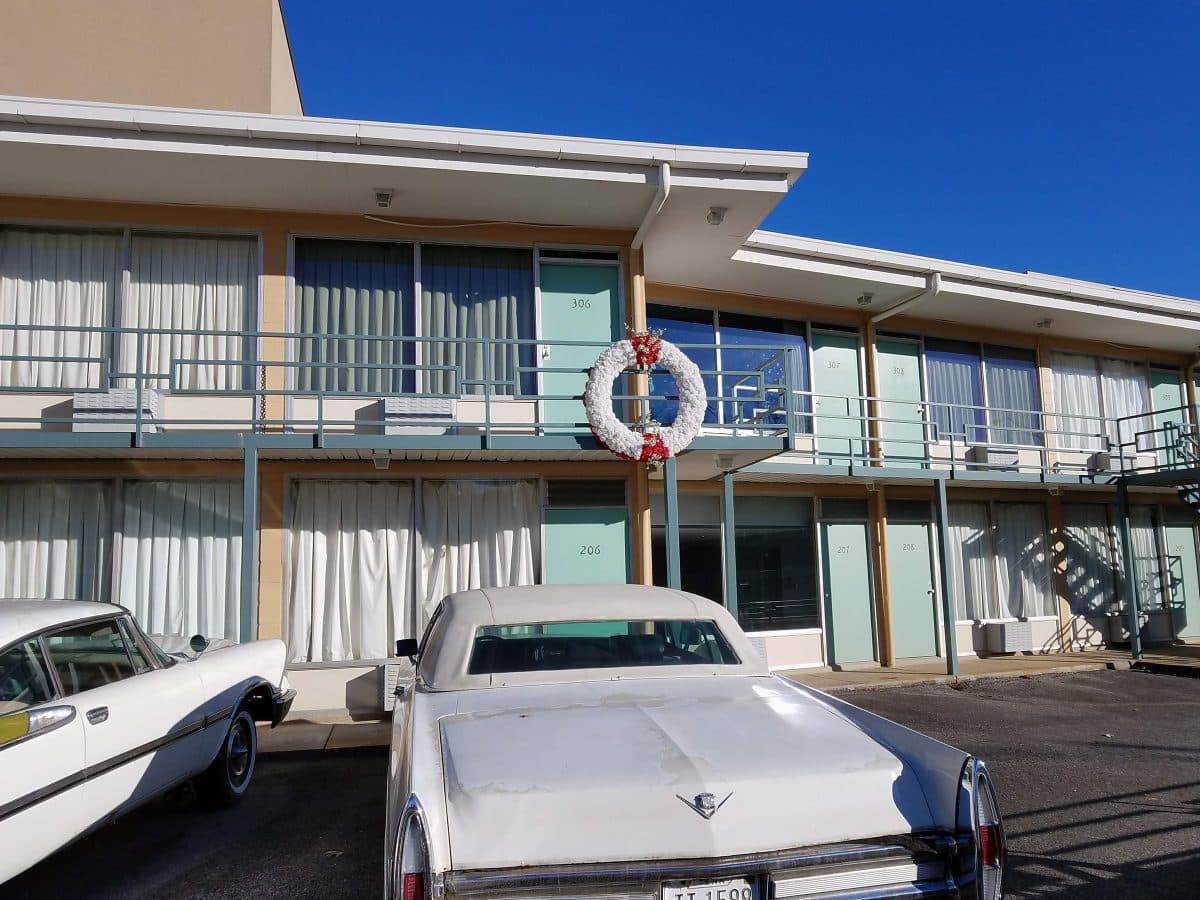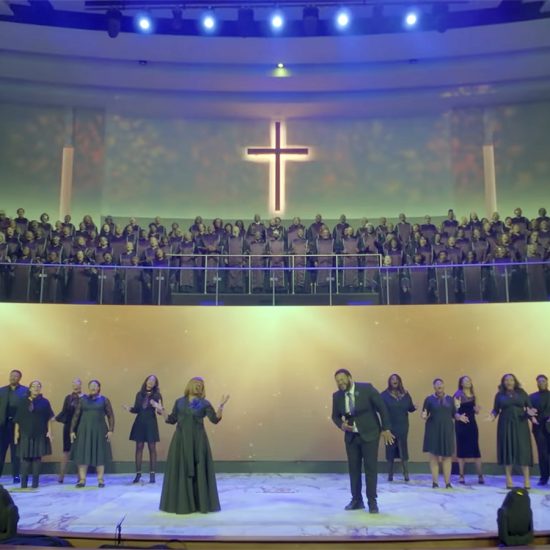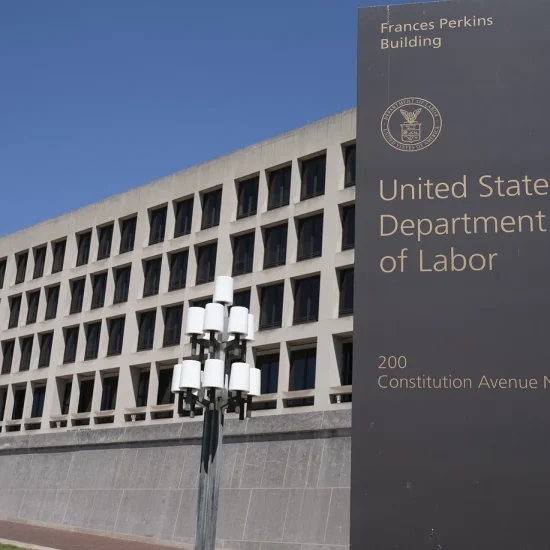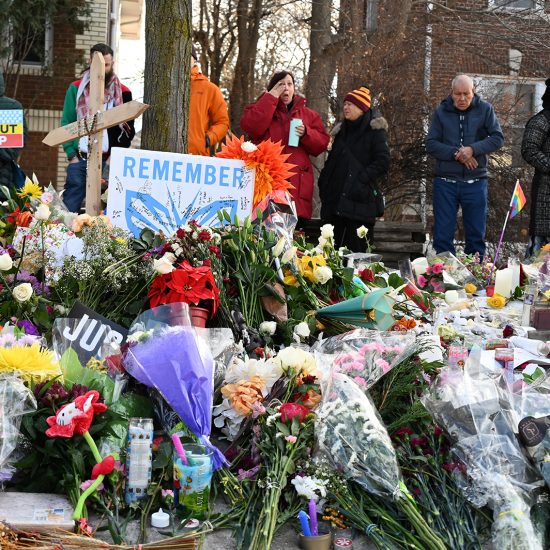
(RNS) — This Easter morning will dawn on a hope that is at once universal and unique to our time: that, as Christ has risen, we too are rising out of the depths of suffering and separation that have marked this year of pandemic. This Easter morning will be especially poignant and meaningful: It coincides with the 53 anniversary of the assassination of the Rev. Martin Luther King Jr. in Memphis, Tennessee, where I live and work.
At Easter we are reminded that in life we are always in death; that Easter Sunday and Good Friday are inextricably entwined; and that we who claim to believe are obligated to hear the cry of the poor and marginalized in our own time — and to answer it.

A memorial wreath hangs on the Lorraine Motel balcony where Martin Luther King Jr. was assassinated in Memphis, Tennessee. (Adelle M. Banks/Religion News Service)
That fact is constantly present to me, the pastor of a predominantly African American congregation, whose historic Memphis church lies mere blocks from the Lorraine Motel where, as he stood on its second-floor balcony on April 4, 1968, King was fatally shot by a White racist.
Memphis remains a city that is separate and unequal for the majority of its minority residents. It is a city that saw COVID-19 disproportionately ravage its disadvantaged communities. As much as it is a city experiencing economic resurgence, it is still a brutally hard place to live for too many who have too few opportunities. We are truly living in the shadow of the Lorraine Motel.
Millions of people in all parts of this country — urban and rural, Black and White — also remain in that shadow. Faith communities bear some responsibility for this. After King was murdered, many among our religious communities accepted the mantle of discipleship and continued the long walk up the mountain to a place of justice and equity for all.
But not enough. As the decades have advanced, too many of us have retreated to our sanctuaries. Too many have been about the business of salvation only, sidelining the call of Christ for us here on earth, commanding us to love one another and elevate the least of these above all.
The pandemic has given us the chance to change course, to regroup and advance once more. The faithful people of my congregation long to return to in-person worship. We rejoice to see that day coming over the horizon in what has been a dark year. But this time has given us the space and the quiet to rethink our priorities. Without the daily distractions that once filled our pre-pandemic days, we have been compelled to pay attention to 21 century manifestations of injustice.
We have seen too clearly the cries of the sick and dying, of the overworked and underfed, of the falsely accused and imprisoned — and have come to realize that many of the systems our society supports are responsible for these imbedded inequities.
We’ve been jarred out of our old life and, I hope and pray, are on the cusp of a new one. Leading and participating in this burgeoning new life has been challenging, but restorative. Pastoring through this pandemic, I have been surrounded by creative congregants eager to serve more and do better — to harness the digital tools of the modern era and use them to reimagine new ways of loving our neighbor.
I have gathered with other pastors (virtually, of course) who have said the same. The last 12 months have been a slog, but they have been rejuvenating too. They have given us more time with our own families. That precious time has inspired a renewed commitment to hear the cries of all families and to serve their needs — not simply by inviting them into our churches, but by reaching out to them and defending them wherever they are.
We are ready now to challenge the systemic evils that are indifferent to their basic human rights and dignity as children in the family of God.
This is our post-pandemic challenge, for all people of faith. We must take it up. We will do a great disservice to all who have suffered and died — from the early Christian martyrs through the martyrs at Mother Emanuel in Charleston, South Carolina — if we emerge from the pandemic only to shelter in place behind our church doors.
We have lived for too long in the shadow of the Lorraine Motel. We must instead transform a place of bloodshed into inspiration for making a better world, as King would have wanted. We must rise from the balcony this Easter — and in all the hopeful days to come.
The Rev. J. Lawrence Turner is senior pastor of Mississippi Boulevard Christian Church, a Disciples of Christ congregation in Memphis, Tennessee.






